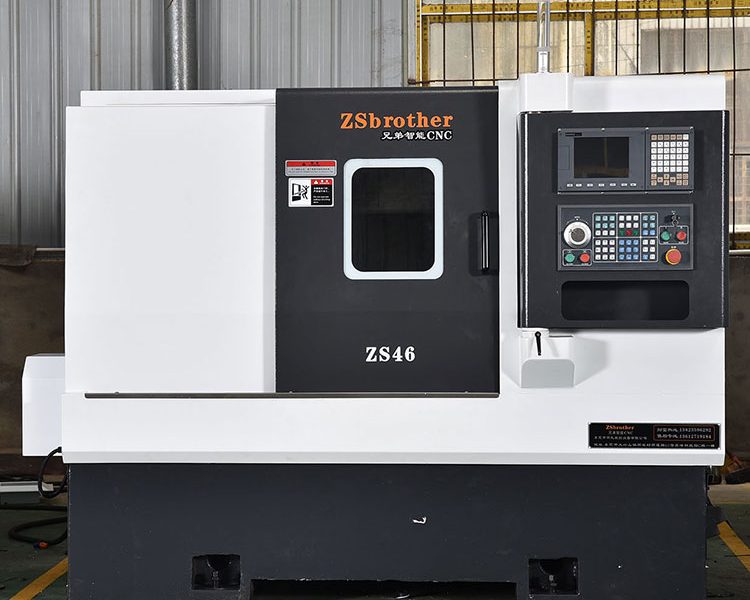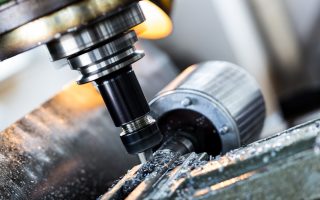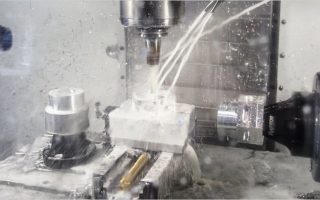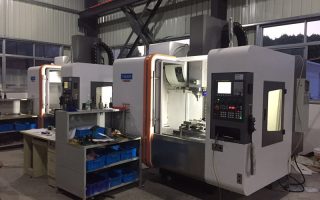
Introduction to CNC Machines and Their Costs
CNC (Computer Numerical Control) machines are a cornerstone of modern manufacturing, offering precision, automation, and efficiency for a wide range of industries. These machines are used to produce parts and components with high accuracy, often in industries such as aerospace, automotive, medical, and consumer goods. However, one of the most common questions for businesses and individuals considering CNC machines is: “How expensive are CNC machines?”
The cost of CNC machines can vary significantly depending on factors such as machine type, size, capabilities, and brand. In this article, we will explore the various types of CNC machines, the factors that influence their costs, and provide an in-depth breakdown of pricing ranges to help you understand what to expect when investing in CNC technology.
Types of CNC Machines
CNC machines come in a variety of types, each designed for specific applications and industries. Below are the most common types of CNC machines:
1. CNC Milling Machines
CNC milling machines are used to cut and shape materials such as metal, plastic, and wood. They use rotating cutting tools to remove material from a workpiece, creating complex shapes and designs. Milling machines are versatile and can perform tasks such as drilling, tapping, and contouring.
**Cost Range:** Entry-level CNC milling machines can cost between $5,000 and $50,000. High-end industrial models with advanced features can cost anywhere from $100,000 to $500,000 or more.
2. CNC Lathes
CNC lathes are used to create cylindrical parts by rotating the workpiece while a cutting tool shapes it. These machines are commonly used for producing shafts, bushings, and other round components. CNC lathes are known for their precision and efficiency in turning operations.
**Cost Range:** Basic CNC lathes can start at around $10,000 to $30,000. Advanced models with multi-axis capabilities and automation features can range from $50,000 to $300,000 or more.
3. CNC Routers
CNC routers are designed for cutting and shaping softer materials like wood, plastic, and foam. They are commonly used in industries such as furniture manufacturing, signage, and prototyping. CNC routers are known for their speed and ability to handle large workpieces.
**Cost Range:** Entry-level CNC routers for hobbyists can cost as little as $1,000 to $5,000. Industrial-grade routers with larger cutting areas and higher precision can range from $20,000 to $150,000 or more.
4. CNC Plasma Cutters
CNC plasma cutters use a high-temperature plasma arc to cut through conductive materials such as steel, aluminum, and copper. These machines are widely used in metal fabrication and construction industries for cutting intricate shapes and patterns.
**Cost Range:** Basic CNC plasma cutters can cost between $10,000 and $30,000. High-performance models with advanced features like automatic torch height control can range from $50,000 to $200,000 or more.
5. CNC Laser Cutters
CNC laser cutters use a focused laser beam to cut or engrave materials such as metal, wood, acrylic, and fabric. These machines are valued for their precision and ability to create intricate designs. They are commonly used in industries like jewelry making, electronics, and signage.
**Cost Range:** Small desktop laser cutters can cost as little as $2,000 to $10,000. Industrial-grade laser cutters with higher power and larger cutting areas can range from $50,000 to $500,000 or more.
6. CNC EDM Machines
CNC EDM (Electrical Discharge Machining) machines use electrical discharges to erode material from a workpiece. These machines are commonly used for creating complex shapes and fine details in hard materials like tool steel and titanium.
**Cost Range:** CNC EDM machines can range from $30,000 to $200,000 or more, depending on their size and capabilities.
7. CNC 3D Printers
CNC 3D printers use additive manufacturing techniques to create parts layer by layer. These machines are widely used for prototyping, product development, and even production in industries like aerospace and healthcare.
**Cost Range:** Entry-level 3D printers can cost as little as $500 to $5,000. Industrial-grade 3D printers with advanced materials and larger build volumes can range from $50,000 to $500,000 or more.
Factors Influencing the Cost of CNC Machines
The cost of a CNC machine is influenced by several factors, including the following:
1. Machine Type and Purpose
The type of CNC machine and its intended purpose play a significant role in determining its cost. For example, a CNC milling machine designed for industrial use will be more expensive than a hobbyist CNC router.
2. Size and Work Area
Larger CNC machines with bigger work areas are generally more expensive than smaller models. This is because larger machines require more materials, higher power, and more robust components to operate effectively.
3. Precision and Accuracy
Machines with higher precision and accuracy levels tend to cost more. This is especially true for industries like aerospace and medical, where tight tolerances are critical.
4. Automation and Features
Advanced features such as automatic tool changers, multi-axis capabilities, and integrated software can significantly increase the cost of a CNC machine. These features enhance productivity and flexibility but come at a premium.
5. Brand and Manufacturer
Well-known brands with a reputation for quality and reliability often charge higher prices for their machines. However, these machines may offer better performance, durability, and customer support.
6. Material and Build Quality
The materials used in the construction of the machine, as well as its overall build quality, can impact its cost. Machines made from high-quality materials like cast iron or steel are more expensive but offer better stability and longevity.
7. Software and Integration
CNC machines often come with specialized software for programming and operation. Machines with advanced software capabilities or compatibility with third-party systems may have higher upfront costs.
Additional Costs to Consider
When budgeting for a CNC machine, it’s important to consider additional costs beyond the initial purchase price. These include:
1. Installation and Setup
Installing and setting up a CNC machine can involve additional costs, especially for larger or more complex machines. This may include site preparation, electrical work, and calibration.
2. Training
Operators may require training to use the CNC machine effectively. Some manufacturers offer training programs, which can add to the overall cost.
3. Maintenance and Repairs
CNC machines require regular maintenance to ensure optimal performance. Maintenance costs can include replacement parts, lubricants, and service fees.
4. Tooling and Accessories
Tooling and accessories, such as cutting tools, clamps, and fixtures, are essential for operating a CNC machine. These items can add significantly to the overall cost.
5. Software Upgrades
Over time, you may need to upgrade the software that controls your CNC machine to access new features or improve compatibility with other systems.
Conclusion
The cost of CNC machines varies widely depending on the type, size, capabilities, and brand. While entry-level machines for hobbyists can cost as little as $1,000, industrial-grade machines with advanced features can exceed $500,000. When considering a CNC machine purchase, it’s important to evaluate your specific needs, budget, and the potential return on investment. Additionally, don’t forget to account for additional costs such as installation, training, maintenance, and tooling.
By understanding the factors that influence CNC machine costs and the different types available, you can make an informed decision that aligns with your manufacturing goals and budget.




